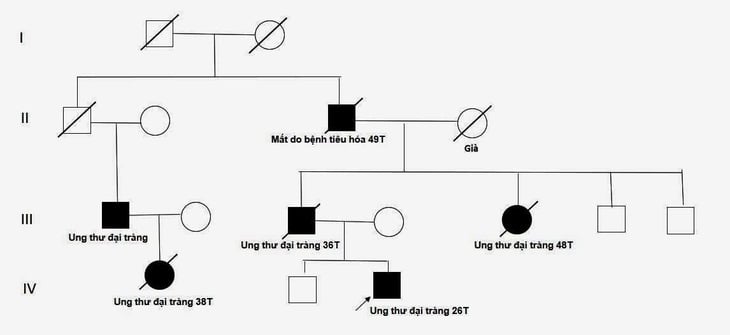
"Family tree" in the family of the 26-year-old patient - Photo: BVCC
Pathology results showed that the patient had colon adenocarcinoma.
What made the doctors pay more attention was the patient's special family history, his father, aunt, uncle and cousin all had colon cancer, and were all hospitalized for prolonged abdominal pain and fatigue.
Therefore, the patient was assigned a gene sequencing test to find the cause. The results determined that the patient carried a mutation in the MLH1 gene. This was key evidence confirming the family diagnosis of Lynch syndrome, the most common form of hereditary colorectal cancer.
According to Dr. Bui Bich Mai, stem cell and gene unit, Nuclear Medicine and Oncology Center (Bach Mai Hospital), when examining, doctors have encountered many cases of hereditary cancer, but the above patient's family has the largest number of people with the disease that doctors have ever encountered so far, with a total of 6 related patients, including 5 people with colon cancer and 1 person who died at the age of 49 due to digestive tract disease.
"A number of centers in the world have announced a treatment method by cutting diseased gene segments for early prevention, but this method has not been applied to cancer. However, thanks to identifying genetic cancer caused by genes, the patient's family can be screened to detect the disease earlier and the treatment will be more effective, for example, early endoscopy screening and cutting all polyps to avoid the risk of cancer" - Dr. Mai said.
What is Lynch syndrome?
Lynch syndrome is a genetic disorder that increases the risk of many types of cancer, especially colorectal cancer. It is caused by mutations in genes that are responsible for "repairing" errors in DNA replication (such as MLH1, MSH2, MSH6, PMS2).
When this repair system fails, mutations accumulate rapidly, leading to cancer at a much younger age than normal. Carrying a mutation in the MLH1 gene means a person faces a much higher risk of developing cancers than the general population, including:
- Colorectal cancer: Risk increases from 1.9% to 52% - 82% (27 to 43 times higher).
- Endometrial cancer (in women): Risk increases from 1.6% to 25% - 60% (15 to 37 times higher).
- Stomach cancer: Risk increases from 0.3% to 6% - 13% (20 to 43 times higher).
- Ovarian cancer (in women): Risk increases from 0.7% to 4% - 12% (5 to 17 times higher).
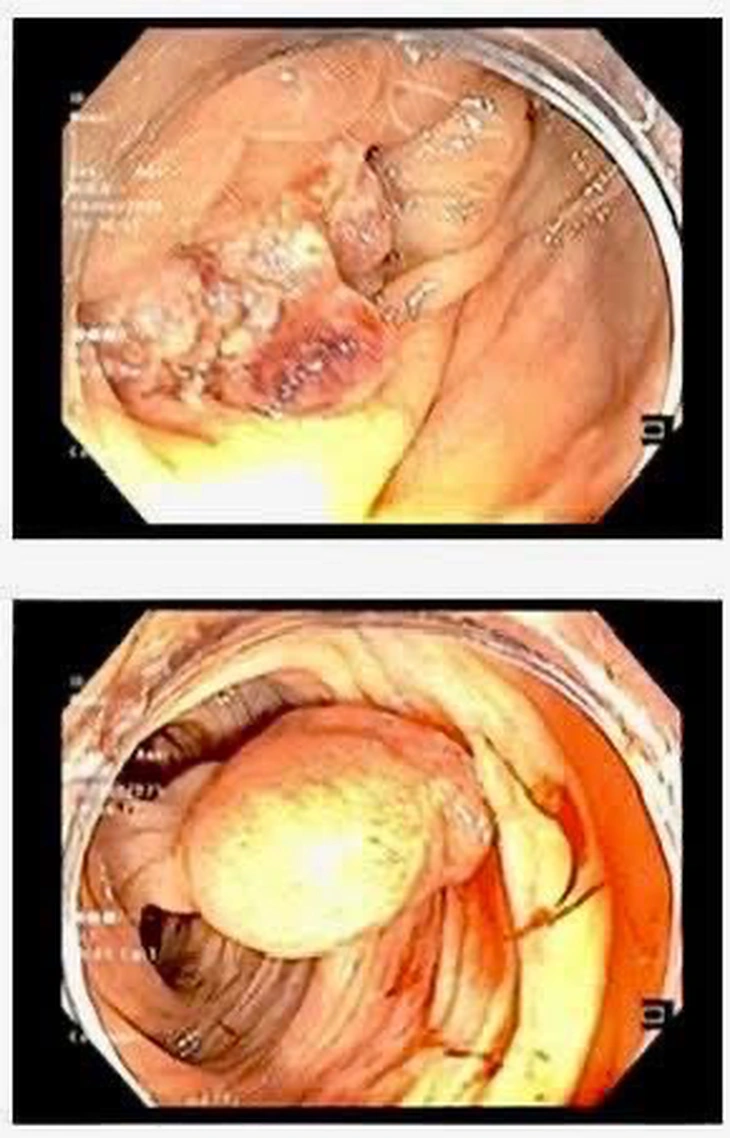
Image of large tumor detected by endoscopy - Photo: BVCC
Should proactively screen for the disease early if carrying the gene
According to Dr. Mai, thanks to understanding the root cause of the disease, doctors not only focus on treating patients but also provide genetic counseling to patients and their families about the risk of genetic diseases.
For families with members of Lynch syndrome, doctors also said that genetic testing for relatives is extremely important to identify high-risk carriers, find out who carries the mutated gene and needs to be closely monitored.
At the same time, proactively screen for people carrying the gene, plan colonoscopy every 1-2 years from the age of 20-25 and other screenings earlier and more frequently to detect polyps or cancer at an early stage. Early detection and treatment helps increase the cure rate and improve quality of life.
"People with cancer in pairs, such as cancer on both sides of the ovaries or a family history of many relatives with cancer, may be signs of hereditary cancer. Currently, Bach Mai Hospital can accurately diagnose hereditary cancer using gene technology, provide genetic counseling and treatment for people with this disease," Dr. Mai added.
Source: https://tuoitre.vn/vi-sao-gia-dinh-nhieu-the-he-bi-ung-thu-nguoi-tre-nhat-moi-26-tuoi-20250904214601289.htm





![[Photo] Prime Minister Pham Minh Chinh chairs a meeting of the Government Standing Committee on overcoming the consequences of natural disasters after storm No. 11](https://vphoto.vietnam.vn/thumb/1200x675/vietnam/resource/IMAGE/2025/10/09/1759997894015_dsc-0591-jpg.webp)
![[Photo] Prime Minister Pham Minh Chinh chairs the Conference to deploy the National Target Program on Drug Prevention and Control until 2030](https://vphoto.vietnam.vn/thumb/1200x675/vietnam/resource/IMAGE/2025/10/09/1759990393779_dsc-0495-jpg.webp)

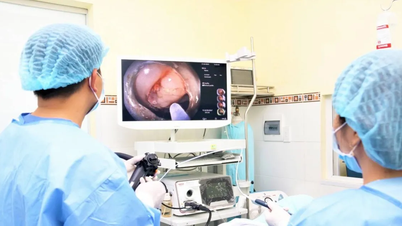

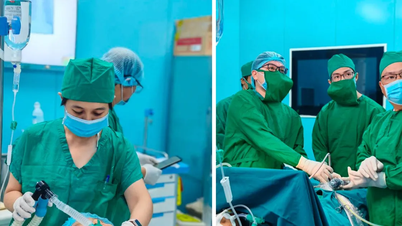
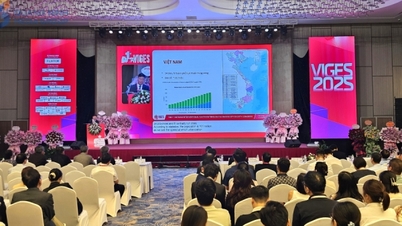

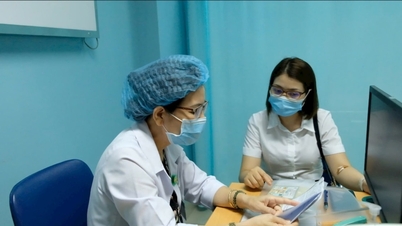










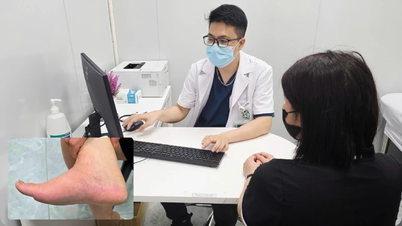












































































Comment (0)